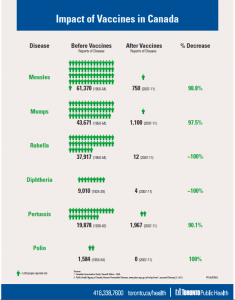There is currently a huge market for energy drinks in which young teens and adults consume them on a regular basis. In particular, the five-hour energy shot, having zero sugar content and only four calories, certainly stand out amongst the crowd. However, does this product really cure tiredness and give us energy and nutrition with no side effects? Are the advertisements conveying all the necessary information for viewers to make an informed decision?
In this commercial, there are some misleading and hidden messages in the claims of the product. For instance, a side effect of caffeine is crashing. Nonetheless, the bottle says “no crash!” To resolve this confusion, users need to pay attention to the flashing fine prints that are significantly less noticeable during the commercial. One of which says, “no crash means no sugar crash.”
The use of fine print and repetition in the commercial might not be enough for a client to make an informed decision. Technically, the company did not lie. During the commercial, they did display and mention all the necessary information. However, the way they aggressively minimized the negative factors, and amplified the positive factors are truly misleading. It is really up to the users to interpret the information given, and use their existing knowledge to be informed about the product.
Furthermore, the nutrients added in the five-hour energy drink such as vitamin B6 and B12 do not have any values in boosting energy. It is the caffeine added in it that is giving the feeling of alertness. Vitamin B6 has functions in neurotransmitter, histamine, and hemoglobin synthesis as well as in metabolism and gene expression. On the other hand, vitamin B12 serves the normal functioning of the brain and nervous system. Although both are essential in the human body, none of them attribute to increasing energy. By associating these nutrients with an energy drink, the advertiser again left an open-ended scenario for the viewers to interpret. Most often, people would assume the causal relationship between vitamins and energy-level improvement.
The commercial and product emphasize the positive effects of the energy drink but fail to point out any risks. Aside from developing tolerance and physical dependence on caffeine, cardiovascular, psychological, digestive and other symptoms can develop with long-term use. Cardiovascular symptoms include: high blood pressure and arrhythmia. Psychological issues include: anxiety and nervousness. It can also lead to increased urination, loss of water-soluble nutrients, and dehydration. Other adverse effects include nausea, restlessness, drowsiness, and insomnia.
Overall, users should take the time to do research on any information given before using a product. We shall always seek for scientific evidence that have been supported by experts in the field, peer-reviewed and supported with raw data before believing anything. We should also use our existing knowledge to interpret information.
-Brigette Wee




